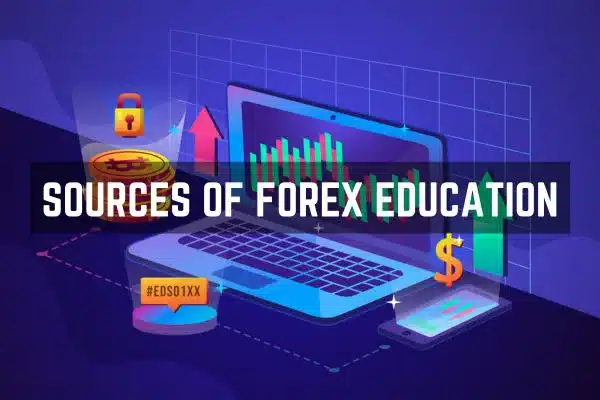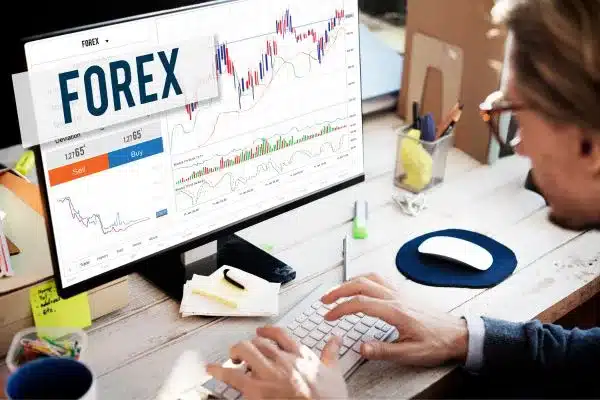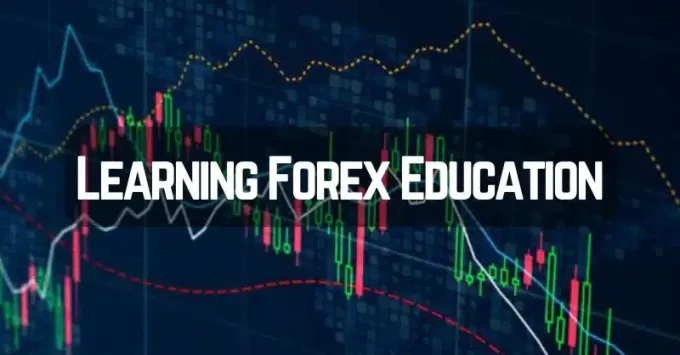Forex education involves learning about the foreign exchange (Forex) market. This education is crucial for trading currencies and provides the necessary skills and knowledge to understand the Forex market. It covers the basic concepts of forex trading including market analysis, trading strategies, risk management, tools and technologies, and more.
Forex trading education can be accessed through online courses, webinars, books, seminars, and mentorship programs. This education is essential for beginners and experienced traders to refine their strategies and stay updated with market changes and new trading technologies.
Firstly, I’d like to explain to you what forex trading is. Forex trading, also known as foreign exchange or currency trading, involves buying and selling currencies on the global financial markets. It’s one of the world’s largest and most liquid financial markets.
Role of Education in Forex Trading Success
The role of education in forex trading success is pivotal and multifaceted. A thorough understanding of forex education can significantly enhance your chances of achieving consistent profitability and long-term success.
Education provides you the essential knowledge about how the forex market operates. This includes understanding key concepts such as pips, lots, leverage, and currency pairs, as well as the mechanics of forex trading platforms and order types. A solid foundation enables traders to make informed decisions and navigate the market with confidence.
Through education, you learn how to analyze price charts and use technical indicators to predict market movements. Technical analysis involves studying historical price data to identify patterns and trends, which can inform trading decisions. Mastery of chart patterns, candlestick formations, and technical indicators is crucial for developing effective trading strategies.
Education helps you understand the impact of economic indicators, news events, and geopolitical factors on currency prices. Fundamental analysis involves evaluating economic data, such as interest rates, employment figures, and GDP growth. This understanding allows you to anticipate market reactions and make trades based on economic fundamentals.
One of the most important aspects of trading education is learning risk management. Proper risk management strategies, such as setting stop-loss and take-profit orders, calculating risk-to-reward ratios, and determining appropriate position sizes, help protect trading capital and minimize losses. Education emphasizes the importance of managing risk for long-term trading success.
Now let’s move on to the importance of education in forex trading.
Importance of Education in Forex Trading
Education in Forex trading is critically important and it plays a vital role in a trader’s potential success in the Forex market. The Forex market has its own set of rules, behavior, and expectations. Education helps traders understand how the market operates including the factors that influence currency movements such as economic indicators, geopolitical events, and market sentiment.
It allows traders to explore and develop trading strategies that suit their investment style and risk tolerance. It includes learning about various analytical methods, trading signals, and the use of technical and fundamental analysis to make effective decisions.
Usually, beginners make a lot of mistakes in trading such as overtrading, emotional trading, or misunderstanding market conditions. Good Forex education can mitigate these risks by instilling discipline and providing a clear framework within which to operate.
With good Forex trading education, traders can more effectively interpret news and reports. They can understand the market, and economic indicators, and make more informed trading decisions.
Sources of Forex Education

You can gain Forex education from various sources. Many Forex brokers provide educational resources to help their clients succeed. These resources typically include webinars, e-books, articles, and video tutorials. Broker-provided education is often tailored to the features and tools available on their platforms.
Websites and platforms feature free and premium content on Forex trading. Here’s how Forex education typically breaks down between free and paid options:
Free Forex Education
Many websites and Forex trading platforms offer free educational resources. These include articles, tutorials, and basic trading guides that cover the fundamentals of Forex trading, market analysis, and risk management.
There are countless free videos and webinars available online. Experienced traders or financial advisors host these webinars. These resources often provide a visual and interactive way to learn about Forex trading basics, strategies, and market insights.
Most Forex brokers offer demo accounts where you can practice trading with virtual money. This is a great way to learn trading without risking actual capital. Alongside these accounts, brokers often provide free educational materials and tools to help beginners understand the trading platform and strategies.
Participating in communities and forums also provides valuable insights and advice from more experienced traders. These platforms often facilitate free knowledge sharing and discussion on various trading topics.
Paid Forex Education
Many professional Forex education providers offer comprehensive and structured Forex trading courses. These courses include a detailed curriculum on advanced trading strategies, live trading sessions, and personalized coaching. They often come with a fee but provide a more organized and in-depth education experience. Usually, paid courses are the best Forex courses as they include all the essentials to start trading.
There are numerous books available that offer detailed insights into Forex trading. While some books are available for free through libraries or promotions and most comprehensive and authoritative texts are purchased.
Hiring a personal trading coach or mentor usually involves a significant expense. However, personal coaching gives tailored advice, direct feedback on your trading strategy, and advanced trading techniques.
While basic trading tools are often available for free, advanced software that offers comprehensive analysis, automated trading algorithms, and detailed market data usually comes at a cost.
Making a Choice

Choosing between free and paid Forex education should depend on your current knowledge level, specific learning needs, and budget. Beginners should start with free resources to grasp the basics and then consider paid options for more advanced knowledge and personalized guidance. Experienced traders should seek out paid resources to refine their strategies or adopt new ones. In all cases, it’s important to make sure that the source of the education is reputable and aligns with your trading goals.
Final Words
Forex trading offers significant opportunities but also comes with a high level of risk due to its complex nature and the use of leverage. Therefore, education and careful risk management are essential for those looking to engage in Forex trading.

